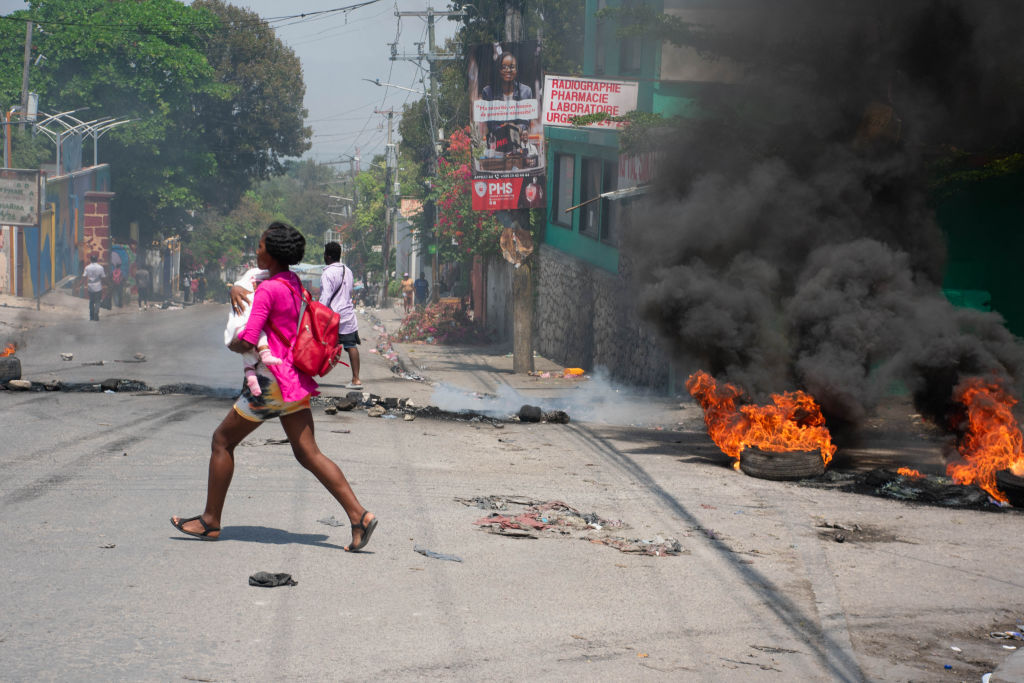
April 21, 2024
Calls For France To Repay Haitian ‘Freedom Tax’ Grow Louder
France demanded the newly freed enslaved population of Haiti pay them, their former enslavers, reparations, a disastrous arrangement for the infant country.
France stole from Haiti almost 200 years ago. However, France has not made an effort to repay what some scholars refer to as a freedom tax. One group is connecting these events to present-day turmoil and calling on the United Nations to ensure a wrong gets righted.
The Guardian reports that 20 non-governmental organizations are seeking an independent commission from the UN’s Permanent Forum on People of African Descent. They refer to the debt France claimed from Haiti in 1825 as a ransom.
Monique Cleska, a Haitian activist leading the effort, told Reuters that to move forward truly, France needs to recognize its role and that “we move forward.”
Jemima Pierre, a professor of global race at the University of British Columbia, is also a member of the coalition. She believes economists have likely underestimated the amount of Haiti’s loss. Pierre told The Guardian, “It’s $21 billion-plus 200 years of interest that France has enjoyed, so we’re talking more like $150bn, $200bn or more.”
The assassination of Haiti’s President Jovenel Möise in 2021 also exacerbated problems in Haiti, which were further compounded by the United States backing Ariel Henry, an unelected leader who has effectively since been forced into exile by Haitian gangs due in part to his unpopularity. Ambassador Daniel Foote, who resigned in protest of President Joe Biden’s decision to deport Haitian immigrants, blasted American foreign policy in his 2021 resignation letter.
“I will not be associated with the United States’ inhumane, counterproductive decision to deport thousands of Haitian refugees. This cycle of international political interventions in Haiti has consistently produced catastrophic results.”
According to NPR, Haiti’s poverty cannot solely be attributed to the decisions of its leaders. The country has been profoundly impacted by the actions of various superpowers, particularly France, which scholars like Marlene Daut of the University of Virginia describe as having committed “the greatest heist in history.”
France demanded the newly freed enslaved population of Haiti pay them, their former enslavers, reparations. This arrangement was disastrous for the infant country, as the amount was approximately three times the country’s GDP, which meant they had to take out loans from French banks at high-interest rates.
As Daut wrote, “Just as the legacy of slavery in the United States has created a gross economic disparity between Black and white Americans, the tax on its freedom that France forced Haiti to pay—referred to as an “indemnity” at the time—severely damaged the newly independent country’s ability to prosper.”
In 2020, French economist Thomas Piketty argued that France owed Haiti at least $28 billion in restitution payments. In an interview with French outlet Le Nouvelliste, Piketty framed his argument in context with the GDP numbers of Haiti. “This debt represented in 1825 the equivalent of approximately three years of Haiti’s production (300% of GDP, one would say using today’s language).”
Pierre, in particular, has been clear and critical of the outsized role France and the United States’ foreign policy have played in creating the conditions that Haiti is in presently. During her remarks in the meeting, she highlighted what outside actors have done to Haiti over its history.
“Haitian people have endured wide-scale violence over the past few decades, especially at the hands of foreigners.” Pierre continued. “In order for the Western imperial powers to mask their own responsibility in the face of violence, precariousness, and poverty that they have helped to create…they devote themselves to their favorite sport—foster a political crisis so that they can come and play savior.”
Pierre closed her remarks by implicating the United States, Canada, and France in its imperialist actions.
“The nature of imperialism never changes. All the ongoing negotiations, by the way, the rest of the Haitian political class occur not just with the participation but through the rules of the United States Department of State (and articulated through its emissaries: Canadian Prime Minister Justin Trudeau, the French government, or now CARICOM).”
RELATED CONTENT: With A Surge In Gang Violence, Americans In Haiti Are Struggling To Find Ways To Escape